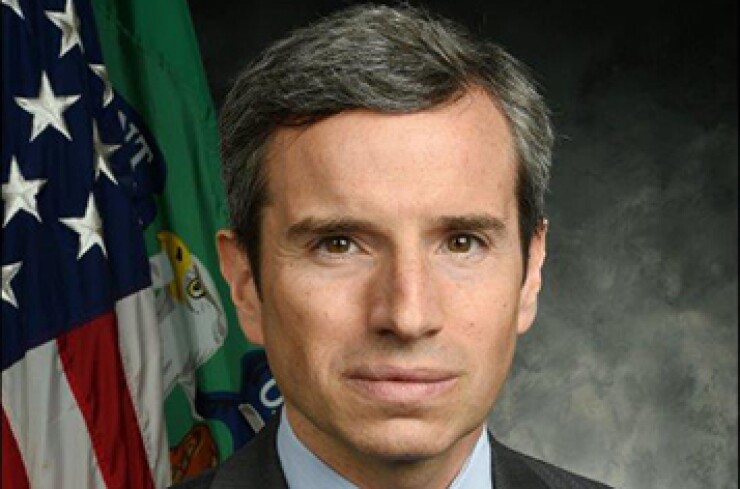
WASHINGTON – As government leaders both nationally and in Puerto Rico enter transition periods after last week’s elections, Treasury is reminding officials both old and new to give a high priority to assistance for the commonwealth.
"We all have a role to play in the coming months: the current and future governor, the oversight board, local legislature, Congress, and the current and future administrations in Washington," Antonio Weiss, counselor to Treasury secretary Jack Lew, said in a speech to the National Tax Association last week. "At Treasury, this is a top priority and we are committed to ensuring a smooth transition to the next administration."
The commonwealth is currently struggling with roughly $70 billion in debt and at least $46 billion in unfunded pension liabilities. Puerto Rico's public pension systems currently have more than 330,000 members and serve as the primary source of income for more than 150,000 retirees, according to Weiss.
The speech followed the election of Donald Trump as the next U.S. president and Ricardo Rossell- as the governor-elect for Puerto Rico. It also comes after the seven-member oversight board, required by the PROMESA law, has been set up and begun to fulfill its duties.
The oversight board has the power to require balanced budgets and fiscal plans from commonwealth leaders, as well as to file debt restructuring petitions on behalf of Puerto Rico and its entities in federal district court as a last resort, if voluntary negotiations with creditors fail.
Current Puerto Rico Gov. Alejandro García Padilla submitted his fiscal plan to the board on Oct. 14 and it is under review. The fiscal plan reflects "key lessons" Treasury has learned, including that austerity alone is "self-defeating" and that vulnerable populations like the elderly and children should be protected, Weiss said.
PROMESA, which also included an automatic stay on debt-related litigation until Feb. 15, was designed to address "the most urgent aspects of the problems facing the island," Weiss said. It lacks certain necessary tools to prevent another crisis when, for example, federal healthcare funding is exhausted, he added. Puerto Rico currently receives $1.5 billion in funding under the Affordable Care Act and that money is due to run out near the end of 2017 without additional federal action. If the funding is exhausted, roughly 900,000 Puerto Rico residents could lose coverage, Weiss said.
There is also a need for federal policies outside of PROMESA that will help spur growth on the island, according to Treasury. Weiss said Congress needs to help Puerto Rico build a viable path to growth and can do so using proven tax measures like the Earned Income Tax Credit and the Child Tax Credit.
Under the current tax system in Puerto Rico, most residents do not pay federal income taxes on locally earned income but their earnings are subject to federal payroll taxes and local income taxes that are similar to federal rates. Residents can also file a federal income tax return to be eligible for the refundable portion of the CTC, but can only do so if they have three or more children.
"Within the context of this complex system, there is a significant opportunity for federal tax reforms to stimulate growth and increase labor force participation," Weiss said.
The EITC is a refundable tax credit that is available to low-income families who live in the states. The tax credit, which is based on income, age, residence, and the presence of qualifying children, is not currently available to people living in territories.
Weiss said the EITC would be "particularly powerful" in combatting Puerto Rico's low labor force participation rate and would also likely increase tax compliance and tax revenues in the commonwealth. He added that taking the three-child minimum off the CTC in Puerto Rico would "improve the lives of roughly 650,000 additional families."
Treasury is looking to an eight-member Congressional Task Force on Economic Growth in Puerto Rico to help implement healthcare and tax solutions on the federal level. The task force, which was also created under PROMESA, is made up of equal numbers of Republicans and Democrats as well as representatives and senators. The text of PROMESA charged the task force with identifying federal laws and programs that impede Puerto Rico's growth and recommending changes that could spur economic growth.
Some have said the task force may be aiming to include possible solutions as part of a potential year-end omnibus bill designed to keep the government funded.





